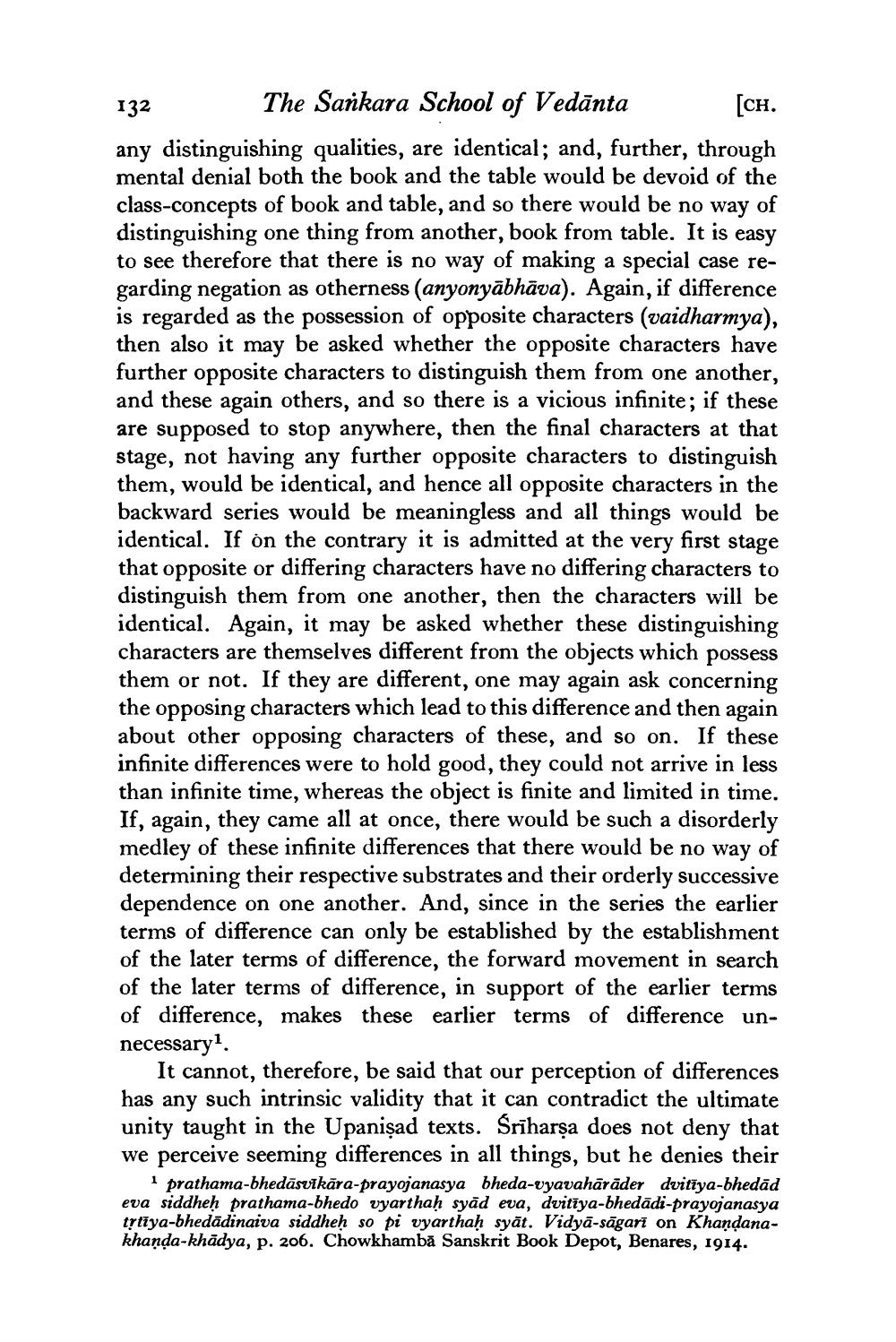________________
132
The Sankara School of Vedānta [CH. any distinguishing qualities, are identical; and, further, through mental denial both the book and the table would be devoid of the class-concepts of book and table, and so there would be no way of distinguishing one thing from another, book from table. It is easy to see therefore that there is no way of making a special case regarding negation as otherness (anyonyābhāva). Again, if difference is regarded as the possession of opposite characters (vaidharmya), then also it may be asked whether the opposite characters have further opposite characters to distinguish them from one another, and these again others, and so there is a vicious infinite; if these are supposed to stop anywhere, then the final characters at that stage, not having any further opposite characters to distinguish them, would be identical, and hence all opposite characters in the backward series would be meaningless and all things would be identical. If on the contrary it is admitted at the very first stage that opposite or differing characters have no differing characters to distinguish them from one another, then the characters will be identical. Again, it may be asked whether these distinguishing characters are themselves different from the objects which possess them or not. If they are different, one may again ask concerning the opposing characters which lead to this difference and then again about other opposing characters of these, and so on. If these infinite differences were to hold good, they could not arrive in less than infinite time, whereas the object is finite and limited in time. If, again, they came all at once, there would be such a disorderly medley of these infinite differences that there would be no way of determining their respective substrates and their orderly successive dependence on one another. And, since in the series the earlier terms of difference can only be established by the establishment of the later terms of difference, the forward movement in search of the later terms of difference, in support of the earlier terms of difference, makes these earlier terms of difference unnecessary!
It cannot, therefore, be said that our perception of differences has any such intrinsic validity that it can contradict the ultimate unity taught in the Upanişad texts. Srīharşa does not deny that we perceive seeming differences in all things, but he denies their
prathama-bhedāsvikāra-prayojanasya bheda-vyavahārāder dvitīya-bhedad eva siddheḥ prathama-bhedo vyarthaḥ syād eva, dvitīya-bhedādi-prayojanasya trtīya-bhedādinaiva siddheḥ so pi vyarthaḥ syāt. Vidyā-sāgarī on Khandanakhanda-khādya, p. 206. Chowkhamba Sanskrit Book Depot, Benares, 1914.




